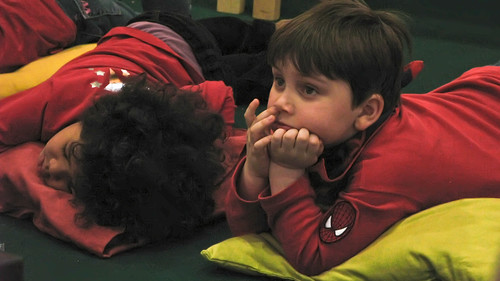One of the most basic skills that anyone can master is the ability to prepare a simple meal. With communal eating, and the sharing of home-cooked food central to most cultures around the world, it’s also a skill that it’s never too early to learn.
Contents
Quality Time
With proper supervision, encouraging children to participate in the making of a family meal can turn the simple act of cookery into valuable family time. From food preparation to helping to wash up, there are many things that even very young children can do safely.
Encourage Healthy Eating
There is no healthier way to eat than preparing fresh food from scratch, and turning dry nutritional facts into fun in the kitchen is an ideal way to encourage kids to ditch the junk food. A good starting point is to prepare a rainbow plate of vegetables, before making a simple and delicious stir-fry.
Teaches Skills for Life
One day, they’re going to fly the nest; sad it may be, but it’s true, and making sure that your children have a basic repertoire of four or five simple dishes with easy food preparation and minimal cooking will ensure they don’t starve when they set up on their own.
Improves Self-Confidence
Food preparation skills can translate into many other areas – teaching your children to think recipes through from shopping for ingredients to putting the meal on the table can hone planning skills early on. Even more important is the confidence boost a shy child can get from looking at a pretty iced cupcake, or a colorful fruit salad, and being able to say “I made that!”.
More Likely to Eat Foods they have Prepared
I was a fussy eater as a child. My frequent refrain with new foods was “I don’t know what it is”, so therefore I wouldn’t eat it, and would rather have gone hungry than backpedal. A good way around this is to engage the fussy eater in food preparation and cooking – it’s far more difficult to refuse to eat something when you’ve seen every stage of the process. Fussy eaters are often picky about how food is arranged on their plate – I couldn’t have white foods touching green ones, for example. Allowing a child to dish up their own meal, and be comfortable about not just the quantity but the layout of their meal can often encourage a clean plate.
Most Important – It will be fun!
Dressing up chores as “fun” is a favorite parent thing, and there’s no way you’ll ever fool a child into thinking otherwise! However, you have a hidden weapon with anything to do with cooking – colorful, pretty recipe books, with an exciting array of beautifully prepared and photographed food. You can start the family activity by choosing some simple recipes that you can make together, shopping for ingredients, and planning the dish – children are less likely to get bored by the supermarket shop if they are learning about ingredients they’ll be using when they get home.
Things like wallcharts with food pictures on them are great for younger children, and as an extra incentive for them to engage with healthy eating, reward stickers are a good incentive for encouraging them to eat enough fruit and vegetables. It’s never too early to teach children good eating habits, and if it’s also family time, then their lifelong relationship with food is likely to be healthier.
Ross Davies writing for Lebreton Health & Safety Training the specialists in food hygiene training courses.


My kids love to help me in the kitchen I just have to work on letting them more.
I let my 6 yr old help me with dinner today and he loved helping
I totally agree that it’s great to teach your kid things that will only help him when he’s grown. It teaches them to be independent and life skills are very important for them to learn. It also is great quality time spent together and fun 🙂
My daughters are now 28 and 25. Enjoy those kids while they’re young and you will help launch them into adulthood filled with confidence and joie de vivre!
Cooking with kids is a wonderful activity with many sequential steps and vast vocabulary. As a Speech-Language Pathologist I can’t emphasize enough: talk talk talk, and read, read, read. Words matter.
Cooking with kids also helps teach the difference between foods that are good for everyday eating vs. occasional treats and eating in moderation.